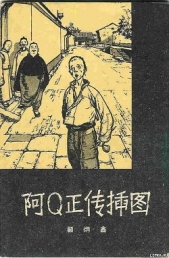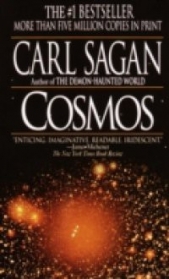Heretics of Dune

Heretics of Dune читать книгу онлайн
Frank Herbert was born in Tacoma, Washington, and educated at the University of Washington, Seattle. He worked a wide variety of jobs - including TV cameraman, radio commentator, oyster diver, jungle survival instructor, lay analyst, creative writing teacher, reporter and editor of several West Coast newspapers - before becoming a full-time writer.
In 1952, Herbert began publishing science fiction with "Looking for Something?" in Startling Stories. But his true emergence as a writer of major stature did not occur until 1965, with the publication of Dune. Dune Messiah, Children of Dune, God Emperor of Dune, Heretics of Dune, and Chapterhouse: Dune followed, completing the saga that the Chicago Tribune would call "one of the monuments of modern science fiction." Herbert is also the author of some twenty other books, including The Jesus Incident, The Dosadi Experiment, and Destination: Void. He died in 1986.
Внимание! Книга может содержать контент только для совершеннолетних. Для несовершеннолетних чтение данного контента СТРОГО ЗАПРЕЩЕНО! Если в книге присутствует наличие пропаганды ЛГБТ и другого, запрещенного контента - просьба написать на почту [email protected] для удаления материала
Teg's Mentat teachers had always assured him there was a form of living-truth not susceptible to proof by the marshaling of ordinary facts. It was carried sometimes in fables and poetry and often went contrary to desires, so he had been told.
"The most difficult experience for a Mentat to accept," they said.
Teg had always reserved judgment on this pronouncement but now he was forced to accept it. The T-probe had thrust him over a threshold into a new reality.
He did not know why he chose this particular moment to emerge from hiding, except that it fitted him into an acceptable flow of human movement.
Most of that movement on the road was composed of market gardeners towing panniers of vegetables and fruit. The panniers were supported behind them on cheap suspensors. Awareness of that food sent sharp hunger pains through him but he forced himself to ignore them. With experience of more primitive planets in his long service to the Bene Gesserit, he saw this human activity as little different from that of farmers leading loaded animals. The foot traffic struck him as an odd mixture of ancient and modern - farmers afoot, their produce floating behind them on perfectly ordinary technological devices. Except for the suspensors this scene was very like a similar day in humankind's most ancient past. A draft animal was a draft animal, even if it came off an assembly line in an Ixian factory.
Using his new second vision, Teg chose one of the farmers, a squat, dark-skinned man with heavy features and thickly calloused hands. The man walked with a defiant sense of independence. He towed eight large panniers piled with rough-skinned melons. The smell of them was a mouth-watering agony to Teg as he matched his stride to that of the farmer. Teg strode for a few minutes in silence, then ventured: "Is this the best road to Ysai?"
"It is a long way," the man said. He had a guttural voice, something cautious in it.
Teg glanced back at the loaded panniers.
The farmer looked sidelong at Teg. "We go to a market center. Others take our produce from there to Ysai."
As they talked, Teg realized the farmer had guided (almost herded) him close to the edge of the road. The man glanced back and jerked his head slightly, nodding forward. Three more farmers came up beside them and closed in around Teg and his companion until tall panniers concealed them from the rest of the traffic.
Teg tensed. What were they planning? He sensed no menace, though. His doubled vision detected nothing violent in his immediate vicinity.
A heavy vehicle sped past them and on ahead. Teg knew of its passage only by the smell of burned fuel, the wind that shook the panniers, the thrumming of a powerful engine and sudden tension in his companions. The high panniers completely hid the passing vehicle.
"We have been looking for you to protect you, Bashar," the farmer beside him said. "There are many who hunt you but none of them with us along here."
Teg shot a startled glance at the man.
"We served with you at Renditai," the farmer said.
Teg swallowed. Renditai? He was a moment recalling it - only a minor skirmish in his long history of conflicts and negotiations.
"I am sorry but I do not know your name," Teg said.
"Be glad that you do not know our names. It is better that way."
"But I'm grateful."
"This is a small repayment, which we are glad to make, Bashar."
"I must get to Ysai," Teg said.
"It is dangerous there."
"It is dangerous everywhere."
"We guessed you would go to Ysai. Someone will come soon and you will ride in concealment. Ahhhh, here he comes. We have not seen you here, Bashar. You have not been here."
One of the other farmers took over the towing of his companion's load, pulling two strings of panniers while the farmer Teg had chosen hustled Teg under a tow rope and into a dark vehicle. Teg glimpsed shiny plasteel and plaz as the vehicle slowed only briefly for the pickup. The door closed sharply behind him and he found himself on a soft upholstered seat, alone in the back of a groundcar. The car picked up speed and soon was beyond the marching farmers. The windows around Teg had been darkened, giving him a dusky view of the passing scene. The driver was a shaded silhouette.
This first chance to relax in warm comfort since his capture almost lured Teg into sleep. He sensed no threats. His body still ached from the demands he had made on it and from the agonies of the T-probe.
He told himself, though, that he must stay awake and alert.
The driver leaned sideways and spoke over his shoulder without turning: "They have been hunting for you for two days, Bashar. Some think you already off-planet."
Two days?
The stunner and whatever else they had done to him had left him unconscious for a long time. This only added to his hunger. He tried to make the flesh-embedded chrono play against his vision centers and it only flickered as it had done each time he consulted it since the T-probe. His time sense and all references to it were changed.
So some thought he had left Gammu.
Teg did not ask who hunted him. Tleilaxu and people from the Scattering had been in that attack and the subsequent torture.
Teg glanced around his conveyance. It was one of those beautiful old pre-Scattering groundcars, the marks of the finest Ixian manufacture on it. He had never before ridden in one but he knew about them. Restorers picked them up to renew, rebuild - whatever they did that brought back the ancient sense of quality. Teg had been told that such vehicles often were found abandoned in strange places - in old broken-down buildings, in culverts, locked away in machinery warehouses, in farm fields.
Again, his driver leaned slightly sideways and spoke over one shoulder: "Do you have an address where you wish to be taken in Ysai, Bashar?"
Teg called up his memory of the contact points he had identified on his first tour of Gammu and gave one of these to the man. "Do you know that place?"
"It is mostly a meeting and drinking establishment, Bashar. I hear they serve good food, too, but anyone can enter if he has the price."
Not knowing why he had made that particular choice, Teg said: "We will chance it." He did not think it necessary to tell the driver that there were private dining rooms at the address.
The mention of food brought back sharp hunger cramps. Teg's arms began to tremble and he was several minutes restoring calmness. Last night's activities had almost drained him, he realized. He sent a searching gaze around the car's interior, wondering if there might be food or drink concealed here. The car's restoration had been accomplished with loving care but he saw no hidden compartments.
Such cars were not all that rare in some quarters, he knew, but all of them spoke of wealth. Who owned this one? Not the driver, certainly. That one had all the signs of a hired professional. But if a message had been sent to bring this car then others knew of Teg's location.
"Will we be stopped and searched?" Teg asked.
"Not this car, Bashar. The Planetary Bank of Gammu owns it."
Teg absorbed this silently. That bank had been one of his contact points. He had studied key branches carefully on his inspection tour. This memory drew him back into his responsibilities as guardian of the ghola.
"My companions," Teg ventured. "Are they..."
"Others have that in hand, Bashar. I cannot say."
"Can word be taken to..."
"When it is safe, Bashar."
"Of course."
Teg sank back into the cushions and studied his surroundings. These groundcars had been built with much plaz and almost indestructible plasteel. It was other things that went sour with age - upholstery, headliners, the electronics, the suspensor installations, the ablative liners of the turbofan ducts. And the adhesives deteriorated no matter what you did to preserve them. The restorers had made this one look as though it had just been cranked out of the factory - all subdued glowing in the metals, upholstery that molded itself to him with a faint sound of crinkling. And the smell: that indefinable aroma of newness, a mixture of polish and fine fabrics with just a hint of ozone bite underneath from the smoothly working electronics. Nowhere in it, though, was there the smell of food.






















